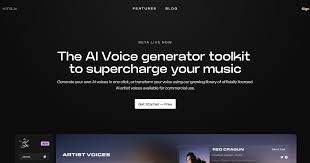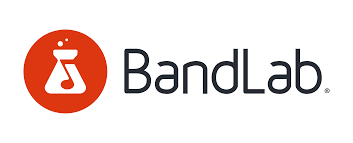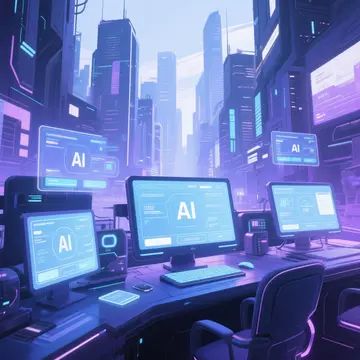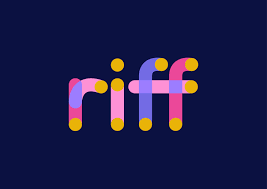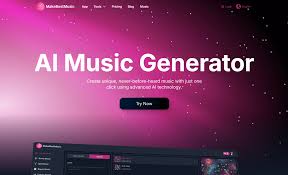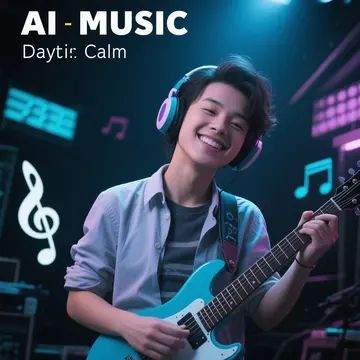AI music production isn't just a buzzword anymore—it's a reality that's reshaping the landscape for producers across every genre. Whether you're a bedroom beatmaker or a seasoned studio professional, you're probably wondering: What does AI music production mean for producers like me? This isn't about replacing creativity. It's about expanding what’s possible with smart tools, faster workflows, and even brand-new ways to collaborate with machines.
In this guide, we’ll explore how AI is being used in the production process, which tools are leading the charge, what the shift means for human creativity, and how you can stay relevant in a rapidly evolving industry.
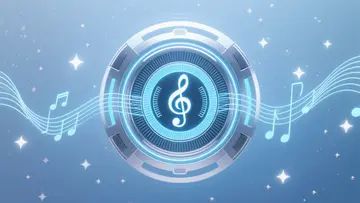
What Is AI Music Production?
At its core, AI music production is the use of artificial intelligence—machine learning models, neural networks, and generative algorithms—to help create, enhance, or automate parts of the music-making process. This can include:
Composing melodies or harmonies
Generating drum patterns
Mastering tracks
Remixing stems
Even writing lyrics and arranging songs
The technology behind it relies on training models with huge datasets of music, enabling them to recognize patterns, mimic genres, or even generate completely novel compositions.
How Does AI Music Production Work in Real Studio Setups?
Let’s break down how AI is being integrated into actual workflows:
1. AI Composition Assistants
Tools like AIVA, Amper Music, or Suno AI can generate original compositions based on genre and mood input. Producers can then edit and build around these frameworks. This is particularly useful for commercial music, content scoring, and background tracks.
2. AI-Driven Beat Generation
Apps like Boomy and Soundful allow producers to instantly generate beats and loops with AI. These are editable and downloadable, making them great idea starters or production bases.
3. AI Mixing and Mastering
Platforms like LANDR, iZotope Ozone, and eMastered offer AI-powered mastering, giving producers studio-like quality within minutes—no deep technical knowledge required.
4. Voice and Vocal Synthesis
AI tools such as Synthesizer V, Voicery, and Google's Tone Transfer are helping producers emulate vocalists, create harmonies, or generate vocal layers without recording a single take.
What AI Music Production Means for Producers Today
The implications of AI music production for producers are both empowering and challenging:
Faster Workflow and Ideation
AI speeds up the initial idea generation process. Instead of staring at a blank DAW, producers can use tools like Ableton Live’s ML-integrated features (via Max for Live) to spark creativity or build layers faster.
Democratization of Music Creation
With free or affordable tools like Suno AI, Loudly, and Beatoven.ai, even non-musicians can make tracks. This opens up the field but also increases competition.
New Roles and Responsibilities
Producers now act more like curators or editors—refining, layering, and personalizing what the AI outputs. Human taste still leads, but the way music is made is evolving.
Increased Pressure to Innovate
With AI rapidly closing the gap in technical quality, producers need to focus on what machines can’t replicate easily: emotion, authenticity, storytelling, and niche aesthetics.
Real Examples: AI Tools Used by Music Producers
Here are a few practical tools already in use:
Amper Music: AI composer for content creators and producers (now part of Shutterstock)
AIVA: Widely used in scoring and classical-style generation
Suno AI: Popular for AI-generated lyrics + music in pop and rap genres
iZotope Neutron & Ozone: Mixing and mastering suites powered by machine learning
LANDR: One-click AI mastering for quick previews and Spotify-ready tracks
Endlesss: AI-based jamming platform, perfect for live collaboration
These tools don’t replace the producer—they enhance and accelerate the process.
Will AI Replace Music Producers?
Short answer: No—but it will redefine the role.
AI doesn’t understand emotion, cultural nuance, or creative intuition. It doesn’t get heartbreak, rebellion, or nostalgia the way humans do. What it can do is speed up mundane tasks, offer quick iterations, and provide inspiration when you're stuck.
So instead of fighting AI, the smartest move is to collaborate with it. Think of AI as the new synth—it changed music, but it didn’t replace musicians.
Opportunities and Threats: A Quick SWOT Breakdown
| Strengths (Producers) | Weaknesses (AI) |
|---|---|
| Emotional intelligence | Lack of contextual understanding |
| Unique sound design | Repetitive outputs |
| Taste & trend awareness | Lacks originality unless trained |
| Improvisation & live input | No real-time feedback loops |
| Opportunities (with AI) | Threats (to producers) |
|---|---|
| Faster iteration cycles | Oversaturation of market |
| Cross-genre experimentation | Lowered entry barriers |
| Greater productivity | Devaluation of originality |
Conclusion: Embrace the Shift, Enhance Your Craft
So, what does AI music production mean for producers? It means you’re stepping into a new era where creativity and computation coexist. The producers who succeed won’t be the ones who resist AI—but the ones who use it wisely.
If you can fuse the emotional intelligence of human artistry with the rapid-fire capability of machines, you’ll be unstoppable. The key is to keep learning, keep adapting, and remember—AI is just a tool. You’re still the artist.
FAQ
Q1: Is AI music good enough for professional use?
Yes, especially for background music, commercials, and demos. Many producers even use AI stems in final productions with proper refinement.
Q2: Can I copyright music made with AI?
It depends on the jurisdiction. In most regions, you can copyright the arrangement or modification, but pure AI outputs may fall into legal gray areas. Always check local IP laws.
Q3: Is AI music production cheating?
Not at all. It’s like using a sampler or synth—it’s about how you use the tool, not whether you use it.
Q4: Will using AI make my music sound generic?
It can if you rely solely on defaults. But combining AI output with your own mixing, sound design, and edits ensures a unique result.
Learn more about AI MUSIC

